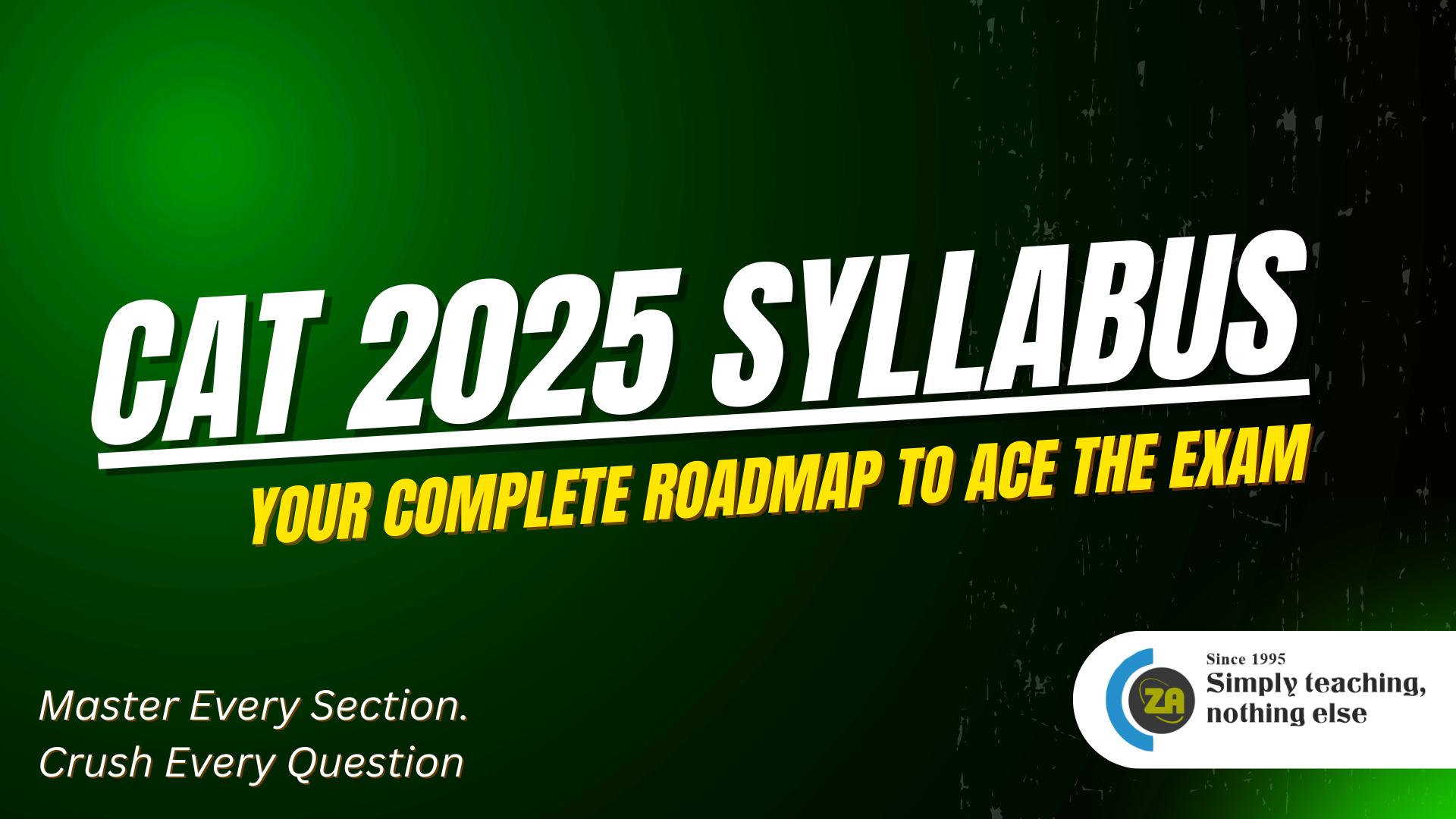CAT Syllabus
The CAT examination does not officially prescribe a fixed syllabus. However, by analyzing trends and patterns in the questions from previous years’ papers, a general outline of the topics commonly tested can be inferred. This approach allows aspirants to gain a comprehensive understanding of the areas they need to focus on for effective preparation.
Section 1. Verbal Ability and Reading Comprehension (VARC)
RC (Reading Comprehension)
Passage Types:
- Business and Economics
- Science and Technology
- Psychology
- Politics
- Social Issues
- Literature
- Fiction and others
- Environmental Issues
Skills Tested:
- Identifying the main idea and supporting details
- Inferences and conclusions
- Author’s tone and purpose
- Summary and structure of the passage
VA (Verbal Ability)
- Sentence Construction
- Para jumbles
- Sentence completion
- Paragraph summary
- Sentence Placement
Grammar and Usage:
- Sentence correction
- Error spotting
Vocabulary:
- Synonyms and Antonyms
- Analogies
- Word usage in context
- Sentence Construction:
- Para jumbles
- Sentence completion
- Paragraph summary
Section 2. Data Interpretation and Logical Reasoning (DILR)
Data Interpretation
Types of Data:
- Tables
- Graphs (Line, Bar, Pie) Charts
- Radar Charts
- Scatter Plot
- Charts
- Venn Diagrams
Skills Tested:
- Data comparison
- Data analysis and interpretation
- Calculation-based questions
Logical Reasoning
Problem Types:
- Arrangement
- Routes & Networks
- Scheduling, Optmization&Allocation
- Games ant Tournament
- Puzzles
- Math Puzzles
- Grid
- Word Puzzle
- Blood Relations
- Venn Diagrams
- Syllogisms
- Direction Sens
Skills Tested:
- Logical sequence and order
- Deductive and inductive reasoning
- Pattern recognition
- Analytical reasoning
Section 3. Quantitative Ability (QA)
Arithmetic
Topics:
- Percentages
- Profit and Loss
- Interest (Simple and Compound)
- Ratio and Proportion
- Averages
- Mixtures and Alligations
- Time, Speed, and Distance
- Time and Work
Algebra
Topics:
- Basic Algebraic Identities
- Linear Equations
- Quadratic Equations
- Inequalities
- Functions
- Progressions (Arithmetic and Geometric)
- Logarithms
Geometry and Mensuration
Topics:
- Lines and Angles
- Triangles
- Circles
- Polygons
- Coordinate Geometry
- Area and Volume of Solids
Number System
Topics:
- Properties of Numbers
- Divisibility Rules
- Factors and Multiples
- LCM and HCF
- Remainders
- Base Systems
Modern Mathematics
Topics:
- Permutations and Combinations
- Probability
- Set Theory
- Trigonometry
- Matrices and Determinants (Basic Level)
Preparation Tips
1. Time Management: Practice with timed mock tests to improve speed and accuracy.
2. Consistency: Regular study and revision of concepts.
3. Mock Tests and Analysis: Take regular mock tests and analyze performance to identify weak areas.
4. Conceptual Clarity: Focus on understanding concepts rather than rote learning.
5. Reading Habits: Develop reading habits for improving comprehension skills.





